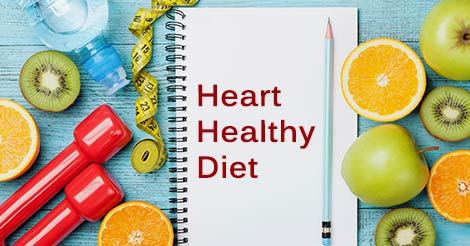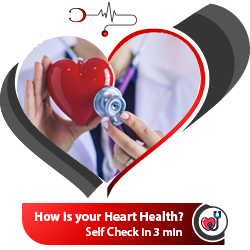Heart-Healthy Diet: Essential Tips to Protect Your Heart & Stay Fit
Eating healthy will keep your heart fit and fluttering flawlessly for a longer time. A heart-healthy diet can diminish the risk of heart disease or stroke by almost 80%.
Follow the following, as these can help hugely in keeping you away from acquiring heart diseases.

Control the portion size while eating
'How much you eat' is as important as 'what you eat'. Making heaps of food in the plate, taking second helpings and eating until you feel stuffed will end up in consuming excessive calories, fat and cholesterol than you actually should be having. Eat till you feel you have had enough to curb your hunger but do not eat to finish all that you have taken. So the smart way not to waste but eat enough is taking small quantities in the first go itself.
You can also try eating in a smaller plate than the usual dinner plate. This psychologically will give you a feeling of a fuller plate and satiated appetite.
Eat more fruits & vegetables
No breaking news it is but vegetables and fruits are low in calories, rich in dietary fibre and the biggest source of vitamins and minerals. Eating more of fruits and vegetables also helps in filling you up and hence you may not end up eating other calorie laden food like meat, cheese and other junk stuff.
Indulge in whole grains
Whole grains are excellent sources of carbohydrates and fibre and help in regulating blood pressure and heart health. Try to add whole grains as much as you can in your meals and refrain from eating refined flour products. Substitute white bread and pasta with brown bread and whole wheat pasta, add coarsely grounded flaxseed in salads/cereals and make chapattis with a combination of grains.
Cut down unhealthy fats
Limiting saturated and Trans fats in your diet is a fundamental measure in reducing cholesterol and minimizing your risk of coronary artery disease. Limit solid fats such as butter, fresh cream and margarine. Trim any visible fat off the meat.
Check the food labels 'reduced fat' or 'partially hydrogenated' in the ingredient list which may mean oils containing Trans fats.
Choose monounsaturated fats like olive oil or canola oil.
Daily recommendation of sodium (salt):
- Healthy Young Adults - 2,300 mg/day (about a teaspoon)
- Above 51 or Older, People with High Blood Pressure, Diabetes or Chronic Kidney Disease - 1,500 mg/day (half a teaspoon)
Select low-fat protein
Lean meat (without fat), poultry, fish, low-fat dairy products and egg whites are some of the best sources of protein for non-vegetarian people.
For vegetarian, legumes like beans, peas & lentils and soya are good sources of protein and contain less fat and no cholesterol.
Reduce the salt (sodium) in your food
Eating a lot of salt in the food can contribute in keeping the blood pressure high, which is a risk factor for cardiovascular diseases. Reducing salt intake is an important part of a heart healthy diet.









